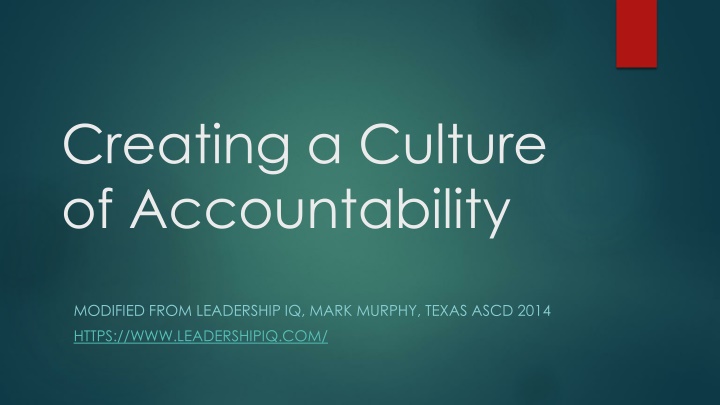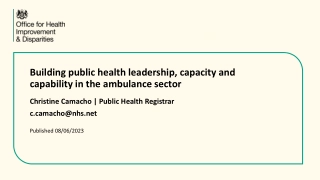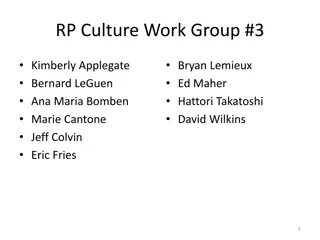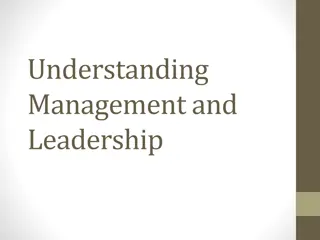Building a Culture of Accountability in Leadership
Establishing a culture of accountability within teams is vital for success. Leaders should focus on building strong relationships, investing time with their team members, and valuing transparency. Encouraging accountability through defining excuses and recognizing achievements loudly can foster a sense of responsibility and commitment. Effective leadership involves promoting a positive work environment, where anxiety is viewed positively as it drives action and consistency.
Download Presentation

Please find below an Image/Link to download the presentation.
The content on the website is provided AS IS for your information and personal use only. It may not be sold, licensed, or shared on other websites without obtaining consent from the author.If you encounter any issues during the download, it is possible that the publisher has removed the file from their server.
You are allowed to download the files provided on this website for personal or commercial use, subject to the condition that they are used lawfully. All files are the property of their respective owners.
The content on the website is provided AS IS for your information and personal use only. It may not be sold, licensed, or shared on other websites without obtaining consent from the author.
E N D
Presentation Transcript
Creating a Culture of Accountability MODIFIED FROM LEADERSHIP IQ, MARK MURPHY, TEXAS ASCD 2014 HTTPS://WWW.LEADERSHIPIQ.COM/
Research by Leadership IQ Ask yourself this? Who has the worst job among the people that you supervise? Is it a high performer? When work becomes more stressful the connections become less important leaders start barking more and investing in relationships less. Hours per week people spend interacting with their leader increases employee engagement and happiness. People who spend 6 hours per week with their leader are 30% more engaged at work and work harder at making the workplace better for everyone. Another interesting point is how much they like their boss was not a huge factor. Simple presence and attention matters most. What leaders spend their time doing tells their team what they value. Bad leaders hate transparency, where as great leaders love it and use it to create environments of accountability and to impact culture.
Accountability Define the excuses so everyone on the team knows what they are when team members say them. Anxiety is a good thing. It is way better than excuses because there is action and they are trying whatever is new or is expected? Would you choose someone being anxious doing what is right with consistency over excuses and tranquility? Research on performance reviews and evaluations 9 out of 10 it says they felt like they got called into the Principals office whether good or bad. They actually quit acting like adults. If we wait for people to mess up to make them accountable that means they are only accountable when the fail. At some point accountability must be pointed out when people succeed and this needs to be done really loud.























